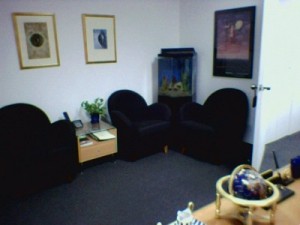
Losing Oxygen
According to the Small Business Administration, there are 23 million small businesses in the United States, of which 52 per cent operate in the homes of their owners. The benefits include reduced overhead costs and improved quality of life. But this arrangement is not without risk and, as I discovered, unknown hazards in my live-work space presented life-threatening risks to which I was exposed sometimes in excess of 20 hours daily.
I rented a two-story, two-bedroom town home condominium with an option to purchase it. The property appeared run-down for lack of proper care, but I did not appreciate how dangerous it was until I had a home inspection performed. The landlord had presented me with his purchase and sales agreement that stipulated “no inspection – as is”, a very big red flag. As the legal right to a pre-purchase home inspection cannot be waived, and as I had not (and never did) sign the purchase and sales agreement, I decided to have a home inspection performed in the property where I had lived as a tenant.
I hired a well-regarded military veteran who is a “Certified Master Inspector”, one of only five people in the state to have attained that level of professional standing. He spent a day at the property and produced a 49-page report identifying serious violations of the housing code. These violations represented threats to my health and safety and to the health and safety of the other building residents. He found multiple sources of carbon monoxide leaks and the absence of carbon monoxide detectors, as required by state law. With respect to the latter hazard, there were detectors in the home that appeared to be dual-use smoke and carbon monoxide detectors, but they were mis-labeled. The units detected only smoke. Or, I should say, they would have detected smoke if they were working – they were over ten years old and not functioning. I was unaware of that hazard. I had no way of determining the age of the smoke detectors (the home inspector did) and as I had replaced the units with fresh batteries, I believed all was well.
Many of the housing code violations were not visible to me, making this home inspection a good investment as it helped me avoid serious problems that would result from purchasing the property. The home inspector found that the water heater exhaust pipe had improper pitch and was not properly sealed. This condition caused the back flow of combustion air that prevented the system from heating the water as it was designed to do. The perforations in the exhaust pipe discharged carbon monoxide into the living space. We contacted the manufacturer of the water heater and after checking the serial number of the appliance, learned that the property owner had installed the water heater himself. The city housing inspector confirmed that the property owner/landlord had done this work without the legally required permit.
Because the city had not issued a permit, the city inspectors were unaware that the work had been done and so did not inspect the heater after the installation, as is their practice. The landlord had told me that the water heater had only recently been installed, just before I moved in. According to the records of the manufacturer, the installation had been performed eight years prior, meaning that previous tenants (and one was a divorced man with three children) also experienced chronic exposure to carbon monoxide without being aware of the risks.
My primary physician, upon learning this information, ordered tests to check the levels of lead and carbon monoxide in my blood. As I don’t work in a profession that exposes me to toxic environmental risks, and as Rhode Island has laws requiring carbon monoxide detectors in all residential properties, my physician had ruled out possible carbon monoxide exposure as the cause of my malaise. As someone who works in the field of risk management/insurance, I was embarrassed to find myself in this situation. I was stunned to learn that Rhode Island does not require rental permits or property inspections prior to leasing a residence. And I learned that over the past ten years, the tenants living in the property had all kinds of problems. According to my doctor, while you can improve your symptoms of carbon monoxide exposure after a walk in the fresh air, the signs of the exposure can be detected for some time thereafter through blood tests.
Enabling your business to be disaster-resilient requires time and care to the safety of your home and the homes of your employees. You cannot give your full attention to the business if you are worried about the safety of your home and family. And if you work from a home office, you have an additional risk factor to consider, one that is more difficult to manage if you lease, rather than own, the property.



